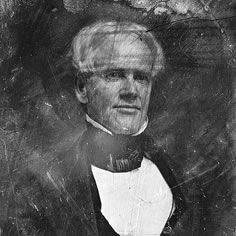
I served as a member of the school board for six years in my hometown. I served during a time when issues of budgets, union contracts and cost cutting measures filled my service. What did not fill my time in office was parental second guessing of administrative policies, controversial discussions related to gender, immigrants, drugs, and sexual behavior, and harsh disputes over academic programs. This was a time when public education was conducted in an atmosphere of trust and cooperation. Certainly, there were differences of views among board members primarily over how best to provide quality education with diminishing resources, but these differences were settled with goodwill and an acceptance of the fiscal realities.
Today, public education and serving in local government is a far cry from the days of goodwill and mutual trust. Those dedicated citizens who put their names forward to serve on school boards find themselves facing angry citizens who have convinced themselves that their taxes are misspent, while superintendents and principals are regularly questioned about how they handle student discipline and teachers are seen as underworked public employees who salaries are excessive. Open meetings where education is on the agenda often turn into shouting matches and charges of incompetence. More parents see the answers for their child’s education in high cost private or parochial schools, semi-public charter schools devoid of unions and the growing popularity of home schooling. There is a troubling consensus in far too many local communities that public education is in decline and that governmental leaders should stop wasting taxpayer money on an educational system that is broken and likely unfixable.
I for one do not believe that public education is in decline or broken, but what it needs is a healthy injection of community involvement and support. What is often the case is that public schools are pitted against police and fire departments for tax resources, while schools and those that support schools are forced to justify their existence and mission. Public schools must once again become the centerpiece of community development, rather than a drag on fiscal affairs. There was a time when leaders like Horace Mann, John Dewey and Booker T. Washington saw public education as the key investment that a community can make for the future as education not only prepared the next generation of leaders but also fostered a climate of growth and mobility that made America prosperous, inclusive and innovative.
At this time of deep political, economic and cultural divisions, making the case that taxpayers/voters need to reassess societal priorities and elevate public education to a new level of prominence is difficult. For too long public education has been seen as contributing to youth violence, racial discrimination, ideological indoctrination, and of course wasteful spending. It is time to see public education as contributing to an appreciation of knowledge, a desire to improve the world through service, the willingness to accept racial, religious and ethnic differences, and most importantly a commitment to use the skills learned in the classroom to advance the common good.
The current stresses on public education will only diminish when the income inequality gap begins to close as a weakened middle class directs its economic anger toward state and local governments. There is much talk these days about strengthening the middle class and returning to the bygone days when workers had the financial capability to support public schools. But as the middle class is squeezed and lives paycheck to paycheck the effort of state and local governments to increase taxes and fees to keep student teacher ratios from exploding upward, provide for updated technology resources, and maintain academic programs that prepare students for the employment challenges of the future run up against the frequent cry of parents: “We just can’t afford any more tax increases for education.”
Asking parents to dig a little deeper to fund public schools is blatantly unfair, especially when there is so much wealth in the pockets of the few who care less about the value of educating the middle class since they can afford to send their kids to elite private schools. If public education is to be saved from a tragic decline, then there must be an equitable funding environment at the state and local levels. As Horace Mann, the father of public education once stated, “Education, then, beyond all other devices of human origin is the great equalizer of the conditions of men.” If we as Americans are to ensure a future for our children based on social mobility, democratic participation and social well being as was the goal of Horace Mann then public education must flourish.